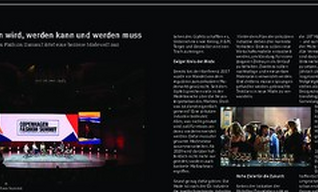
Allegra Isert
Düsseldorf
-
Noch keine BeiträgeHier wird noch geschrieben ... bitte schaue bald nochmal vorbei

Allegra Isert
-
public relations
-
journalism
-
indesign
-
online journalism
-
seo copywriting
-
fashion journalism
-
creative writing
As a fashion journalism and media communication student, I’m a passionate writer seeking to become a professional journalist. I hope to find new contacts in the field of journalism in order to improve my network and professional online presence.
Fehler!
Leider konnte der Artikel nicht gefunden werden.
We can't find the internet
Attempting to reconnect
Something went wrong!
Hang in there while we get back on track


